RCE Gwangmyeong
 Overview
Overview
Gwangmyeong city is geographically close to Seoul, the capital city, but as an administrative district, Gwangmyeong city belongs to Gyeonggi Province and has a population of 300,000. Gyeonggi province, to which Gwangmyeong city belongs, is a metropolitan province in the northwest part of Korea, which surrounds Seoul and Incheon, and is composed of 31 cities and counties. The city of Gwangmyeong has the advantages of convenient living, including transportation and education, and natural environment.
The city has good public transportation such as KTX railways, subways, and buses, and is easily connected with other cities including Seoul. Therefore, it is suitable for establishing an ESD network of the RCE cities of Korea between cities connecting Seoul, Gwangmyeong, and Incheon.
Despite being a city, Gwangmyeong city is a city where every citizen can enjoy natural environments such as four mountains and two rivers within a 15‐minute walk. It has a deep root of ESD activities that study and preserve the natural environment for a long time.
The main strategy of RCE Gwangmyeong consists of four elements: 1) individual learning; 2) practice of learning community; 3) establishment of an integrated ESD centre; and 4) networking local and global RCE cities.
Firstly, individual learning is run for schools, citizens and companies. Schools focus on intensive implementation for teachers and students. Lifelong learning centres and ESD institutions teach many subjects of ESD for citizens, companies, and will train citizens as experts for the 17 SDGs.
Secondly, to solve local problems led by the learning community, businesses, Gwangmyeong City, and citizens form an ESD council to develop and promote joint action projects. In addition, in order to secure a space where the community can share, cafes, small libraries, and community centres are opened to them.
Thirdly, to establish the basis for a separate RCE, the city forms an RCE Steering Committee and ESD institutions play the role of a control tower.
In the end, there is a need to strengthen exchanges on joint projects between domestic and foreign RCE cities and on education for sustainable development with the sister cities of Gwangmyeong city, and our city plays a role as an RCE platform representing 31 cities and counties in Gyeonggi Province.
In summary, our short-term and long-term goals are:
1. Short term goals
- Nurturing ESD clubs on local governance
- Organising ESD Council for effective ESD
- Networking with higher education institutions and local businesses
2. Long term goals
- Specialising in ESD by establishing a separate RCE
- Becoming a local and global RCE platform
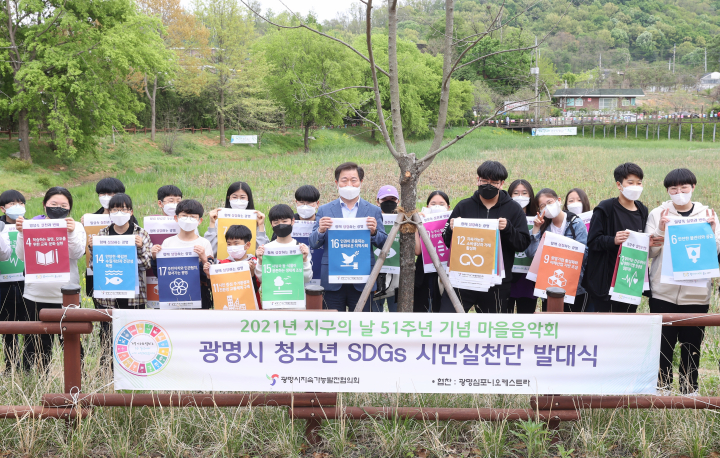
(Photo source: RCE Gwangmyeong)
Sustainable Department of Gwangmyeong city
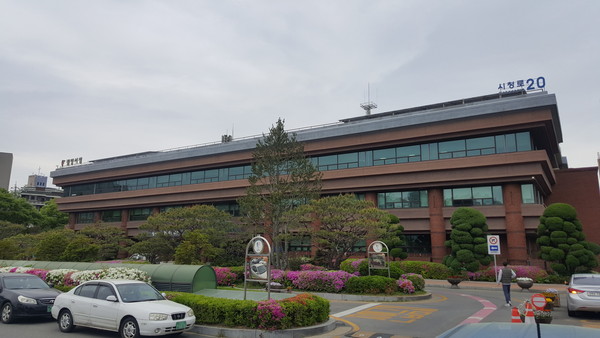
(Photo source: RCE Gwangmyeong)
Name of organisation: 24 elementary schools
Role: Education for elementary students
Name of organisation: Public Education Support Office
Role: Planning and networking for ESD
Name of organisation: Lifelong Learning Centre
Role: Education on six specialised fields including climate, social business, pet studies, civil autonomous etc. for adults
Name of organisation: Six public libraries
Role: Teaching how to achieve zero wastes through reading books
Name of organisation: Climate Energy Centre
Role: Education on the production of new and renewable energy
Name of organisation: Upcycling Art Centre
Role: Education on upcycling art and fostering eco-friendly companies
Name of organisation: Start-up Business Centre
Role: Accelerating social ventures and social economy companies
 Activities
Activities
- Publishing manual for teachers to teach SDGs to students.
- SDGs Civic University is being run by civic stakeholders for Sustainable Development.
- School education supporting centre has archived information of many institutions which is responsible for ESD in the area.
- The Urban Regeneration Centre provided junior high school students with an opportunity to identify local issues necessary for sustainable development from a youth perspective by running urban regeneration school programs.
- The Climate Energy Centre opens the Energy BEE School program. Climate experts visit 24 elementary schools to implement education that prevents climate change in everyday life.
- Private cafes in the area are turning into net zero cafes that offer programs to experience climate education and electricity production. Here, citizens learn about sustainable development goals, such as climate crisis response and fair trade.
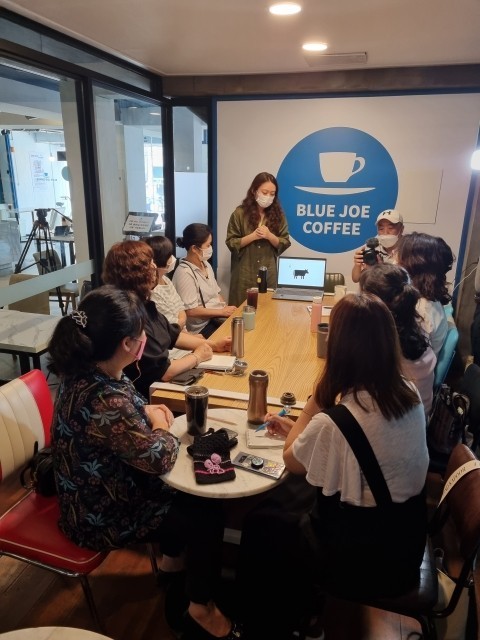
(Photo source: RCE Gwangmyeong)
- To reduce food waste, citizens voluntarily set up shared refrigerators in seven places. They donate leftover food or exchange food ingredients with each other.
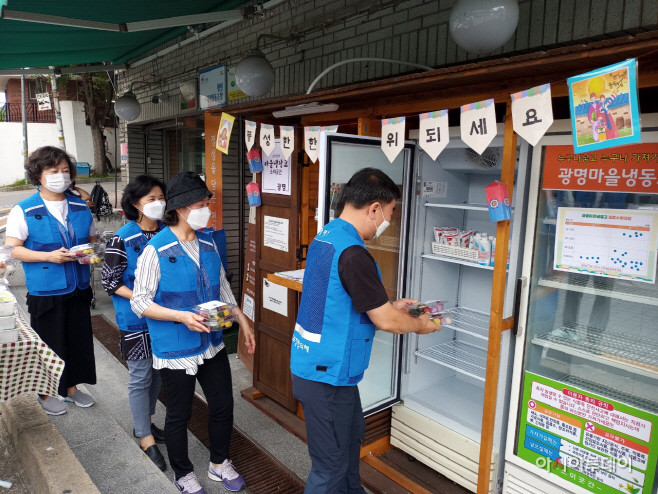
(Photo source: RCE Gwangmyeong)
- The Centre for Social and Economics sends professional lecturers to elementary schools to educate students on fair trade.
- The youth SDGs group conducts an ecological survey of 'Seodok' mountain in Gwangmyeong City with professional educators. They will investigate and announce endangered plants and the main plants native in the mountain.
- The Start-up Support Centre provides change maker training for high school students. Students can learn social entrepreneurship and sustainable solutions by professional teachers from 11 high schools.
- Elementary, middle and high schools provide students with urban farming experiences. At school, students are provided with vegetable seeds such as lettuce and cherry tomatoes, as well as soil and small boxes to grow their own vegetables.
- Korea Polytechnic College provides advertising-making training to high school students. Students can understand SDGs by creating sustainability-themed public-interest advertisements.
- The Council for Sustainable Development, a private governance organisation, trains 30 librarians as professional instructors for SDGs training. After education, they will lead the learning community for sustainable development in their small libraries.
- Upcycled Art Centre operates an eco-building program for elementary school students. Seoul National University architecture majors educate students on the creation of architectural structures using recycled wood.
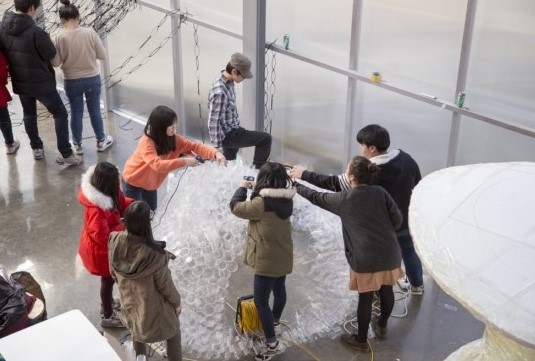
(Photo source: RCE Gwangmyeong)
- Hold a ceremony to declare a vision for Sustainable Development with citizens.
- Selected as a Korean candidate for the '2021 4th UNESCO Learning City Award' hosted by the UIL.
- Gwangmyeong City received an award presented by the Minister of Environment at the '21st Korea Sustainable Development Awards’.
- Expanded cooperation network with Gwangmyeong City and Gwangmyeong City Education Support Agency for sustainable development education.
- Increased civic communities that are targeting sustainable development in solving local problems by spreading awareness of sustainable development in local communities.
 Communication Channels
Communication Channels
 Contact Details
Contact Details
sud284@korea.kr
duncan2123@korea.kr
Gwangmyeong City Municipal Hall, 20, Shicheong-ro, Gwangmyeong City, Gyeonggi Province (Cheolsan-dong), South Korea



